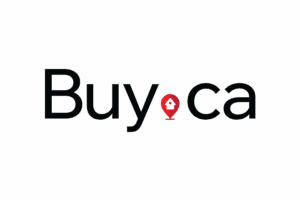Earlier this year, headlines of homes being sold from unsuspecting owners on vacation put a highlight on the dangers of fraud in the increasingly expensive real estate market in Canada.
Our mortgage expert Robert Malcolm reacted to the recent news on LinkedIn saying: “Title insurance plays such a critical role for both lenders and borrowers. What does the future of title insurance look like as more stories like this continue to occur? The answer should not be to pass the increasing costs to the consumer.”
“I am especially concerned for the homeowners who are seniors and may be more susceptible to scams that extract equity from an asset that is increasingly becoming a lifeline to those that have access.” said Rob.
The story brought up an important conversation around what legal recourse homeowners have to protect themselves from fraud.
Recommended reading: What is mortgage title insurance?
We reached out to our partner Lawvo, to leverage their expertise in the legal space and discuss how homeowners can protect themselves from mortgage fraud.
Key Takeaways
- Take steps to protect yourself against fraud, like keeping your personal information secure, and being mindful of activity in your accounts.
- Title insurance is your first line of defence against mortgage fraud and is usually purchased with your home during closing.
- If mortgage fraud increases it’s possible that title insurance will become more expensive for homeowners.
How can you protect yourself against mortgage fraud?
There are a number of things individuals can do to prevent or decrease the likelihood of being a victim of mortgage fraud.
- If fraudsters don’t have your personal information it reduces your risk of getting defrauded. Keeping that in mind, be prudent and cautious with sharing your personal information, avoid providing it over the phone, text or email unless you have initiated the contact or know with whom you’re dealing.
- Be familiar with your billing cycles and follow up with your service providers if your bills fall outside of those cycles.
- Limit mail theft by regularly retrieving mail. Ensure someone can collect it for you if you are on vacation or on an extended absence.
- Minimize the number of ID cards in your wallet and make sure you don’t carry your Social Insurance Number (SIN) card, rather leave it in a secure place. Only give out your SIN when absolutely necessary. Ask to use other types of identification when possible.
- Be mindful of what you throw out in the garbage or in recycling bins and shred confidential documents before disposing of them.
- Regularly check your credit card statements to ensure it aligns with your spending and there are no unrecognizable charges.
- Regularly review your credit report/rating as this will show if any accounts have been opened under your name without your knowledge. There are two credit reporting agencies in Canada: Equifax Canada and TransUnion Canada. You can request free copies of your credit report from credit reporting agencies by mail. Online versions of reports are also available for a fee.
- You or your legal representative can conduct a property search at the land registry office to ensure that the title to your home is correctly stated.
- Consider purchasing title insurance.
Recommended reading: What is title insurance?
What should you do if you notice something suspicious?
If you suspect you’ve been a victim of a scam or fraud you should take action immediately:
- Report any fraudulent accounts to the appropriate financial institutions
- change all of your passwords
- report the fraud to both credit bureaus (Equifax and TransUnion)
- Contact your local law enforcement agency to file a report
- Contact the Canadian Anti-Fraud Centre toll free at 1-888-495-8501
What is the government doing to stop homes from being stolen?
Government actions around mortgage fraud prevention have largely been deterrent-based with both criminal and civil penalties for offenders, however, the Federal government is also launching some preventative tools to mitigate the frequency of fraud through the creation of the Canadian Anti Fraud Center which will make links between similar reports of cybercrime and fraud across Canada and internationally to help identify fraud before it becomes problematic.
In addition, provincial regulators have created policies and procedures and enforce laws and regulations that are intended to prevent mortgage fraud by protecting borrowers and lenders. These laws prohibit mortgage licensees from engaging in certain practices which amount to mortgage fraud. These practices include giving, assisting, inducing or counseling another person or entity to give or assist in giving any false or deceptive information when carrying on the business of dealing, trading, lending or administering mortgages. In addition, there are three Standards of Practice Regulations under the various provincial laws that include key requirements to prevent mortgage fraud by governing Mortgage Brokers and Agents, Mortgage Brokerages and Mortgage Administrators.
Who is most impacted by mortgage fraud?
Fraud impacts everyone. It not only will affect lending institutions and real estate professionals but will ultimately impact individual homeowners, homebuyers, most importantly the health of the Canadian economy can be impacted as fraud can also lead to an overheated housing market, and rising costs for title insurance premiums.
Will title insurance become more expensive?
It goes without saying as fraud increases there will be more claims made on title insurance policies which will require title insurers to pay out more claims which will in turn lead to an increase in the fees and premiums in purchasing title insurance. The typical cost for title insurance will be around $500 for a $750,000 home.
Thanks to Lawvo for providing their expertise and shining some light into how homeowners can protect themselves.
For all your homeownership needs, including alerts on your properties, and personalized mortgage planning, sign-up for Perch and make homeownership simple.






